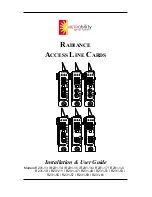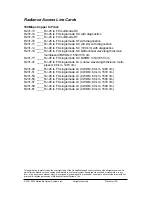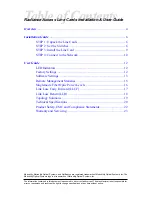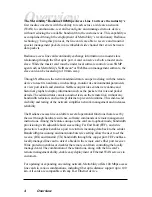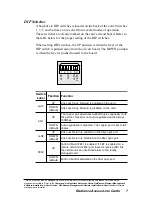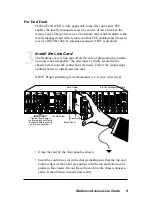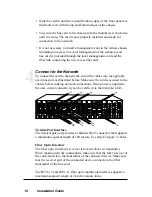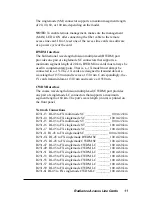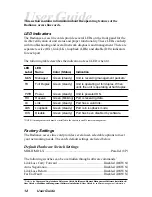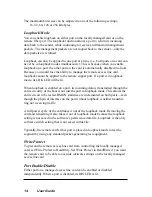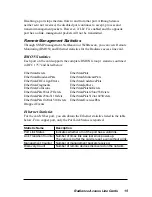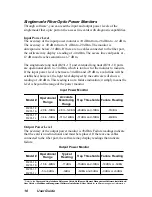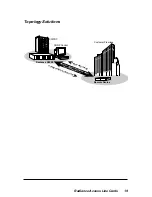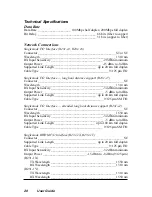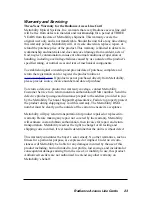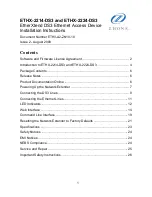
14
User Guide
The maximum burst size can be adjusted to one of the following settings:
16, 32, 64, 128 or 256 kilobytes.
Loopback Mode
You can enable loopback on either port on the locally managed card or on the
remote fiber port. The loopback function allows a port to return its incoming
data back to the sender, while continuing to receive and transmit management
packets. The management packets are not looped back to the sender—only the
data packets are returned.
Loopback can only be applied to one port at a time (i.e., both ports on a card can
never be in loopback mode simultaneously). This is because when you enable
loopback on a port, the other port on the card is automatically disabled (no link).
Because you would lose the ability to manage the remote access line card,
loopback cannot be applied to the remote copper port. If a port is in loopback
mode, its LBK LED will be lit.
When loopback is enabled on a port, its incoming data is transmitted through the
entire circuitry of the board, not just the port in loopback mode. This allows the
entire circuit to be tested. RMON statistics are incremented on both ports—even
though the physical interface on the port without loopback is neither transmit-
ting nor receiving traffic.
A full power cycle of the card takes it out of the loopback mode. Removing the
card and reinserting it also takes it out of loopback mode because the loopback
setting is not saved in the software’s persistence data file. Loopback is the only
software switch setting that is not saved in this file.
Typically, the remote card’s fiber port is placed in loopback mode to test the
segment by using any standard packet-generating test equipment.
Write Protect
To prevent the remote access line card from controlling the locally managed
card, set Write Protect to ReadOnly. Set Write Protect to ReadWrite if you want
the remote card to be able to override software settings on the locally managed
access line card.
Port Enable/Disable
Either port on a managed access line card can be enabled or disabled
independently. When a port is disabled, its DIS LED is lit.

